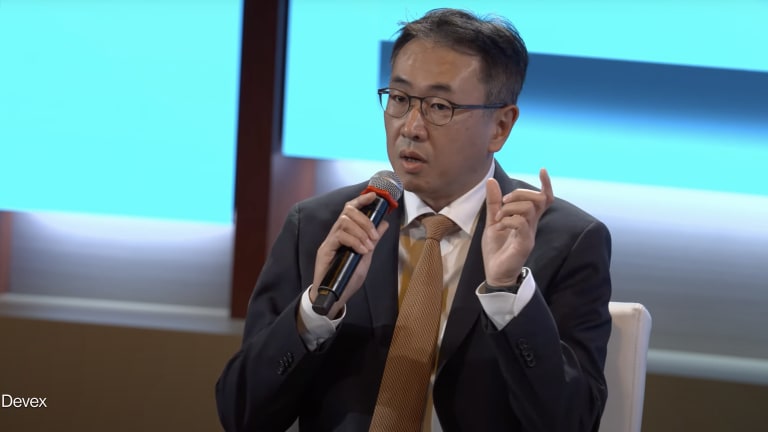
SAN FRANCISCO — The Bill & Melinda Gates Foundation will release free and open source software to address the lack of interoperability between financial service providers and payments platforms. The code is called Mojaloop, building on the Swahili word moja, which means one. The Gates Foundation expects the code will serve as a reference model for payment operability across Africa and Asia.
The aim is “to enable as many of the 2 billion unbanked today to be connected,” Kosta Peric, deputy director of Financial Services for the Poor at the Gates Foundation, told Devex. “We also hope to establish in developing countries economies that are inclusive — that benefit everyone when they include everyone.”
See more stories on financial inclusion:
► 3 'model countries' selected for a new financial inclusion initiative
► Opinion: E-transfers don't naturally promote financial inclusion — but they can
► Opinion: Kenya's decade of political and financial inclusion
► Q&A: Why the Gates Foundation is working with governments to digitize payments
The lack of interoperability between digital financial services and payment platforms has held back progress in reaching people who lack bank accounts, Peric said. This code aims to reduce the complexity and cost of building payment platforms to extend these financial services to the poor.
“Interoperability is necessary both for financial inclusion and market maturity, but it is a complex thing to achieve,” Benno Ndulu, governor of the Bank of Tanzania, said in a statement about the code’s release. “We are excited to explore implementation of this because of how it can simplify that capability for businesses and governments, and speed up access to financial services.”
When companies decide to interoperate, rather than trying to capture the entire market, users can send money to more people, rather than being limited to those who have the same providers, explained Peric.
The Gates Foundation created Mojaloop in partnership with financial technology developers, including Ripple and Dwolla. They leveraged emerging technologies such as the Interledger Protocol, which allows providers to settle funds across their individual systems. They brought together mobile systems companies Huawei, Telepin, Ericsson, and Mahindra Comviva, to develop this Open API for mobile money interoperability.
“In order to achieve the full potential of mobile money, we must evolve today’s complex and often fragmented digital payments ecosystem,” said Shi Yaohong, president of the software product line at Huawei. “I look forward to exploring opportunities to leverage Mojaloop to help us achieve our goal of bringing digital financial services to all poor and low-income customers.”
Mobile companies provide the technology for mobile money wallets, and each had implemented their own mobile money in Tanzania. They realized, however, that they could neither grow the market nor increase their own revenues operating individually, Peric said.
Mojaloop was created by the Gates Foundation’s Level One Project, which is focused on building inclusive payment models to benefit the poor. The project is driven by eight core principles, Kosta said, including secure transactions and fraud protection, low or no cost products and services, and immediate fund transfers.
Developers can access the new software on the open source development platform GitHub, and more information on code is available at mojaloop.io.
Update, Oct. 16: This story was updated to clarify that the code will be launching globally.
Read more international development news online, and subscribe to The Development Newswire to receive the latest from the world’s leading donors and decision-makers — emailed to you free every business day.








